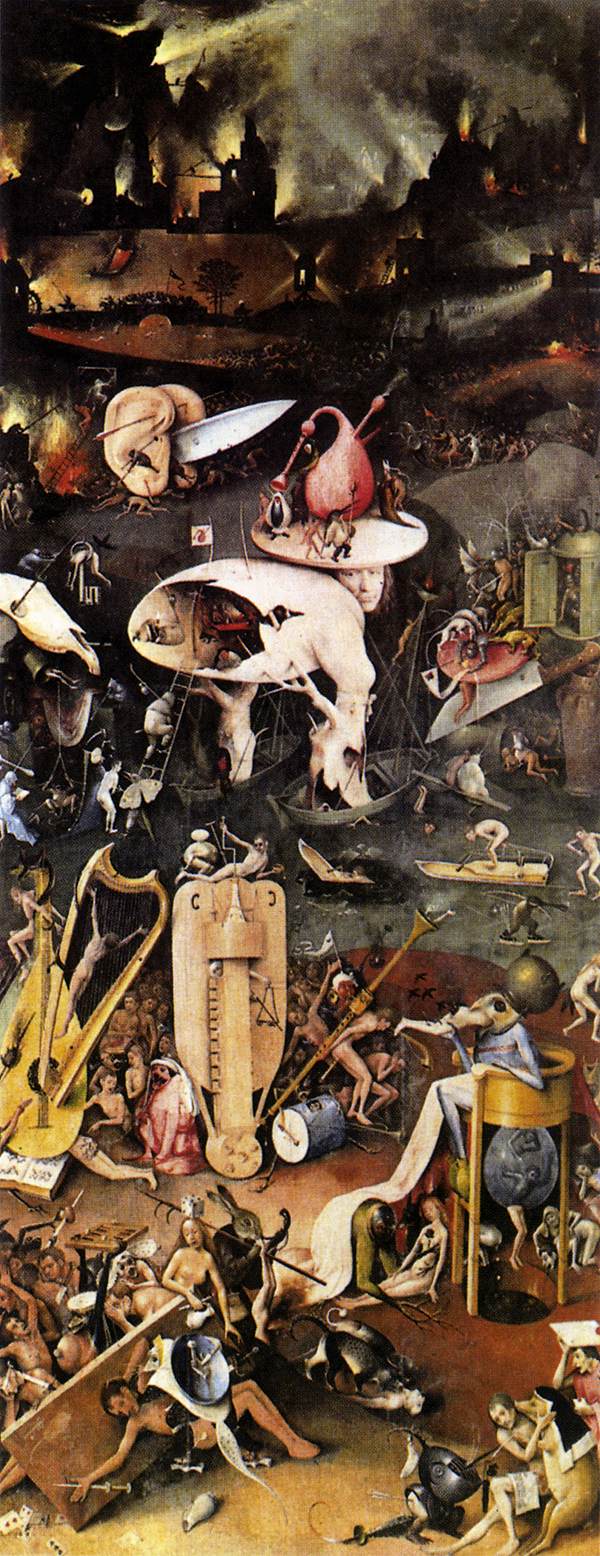Description
The Triptych of Garden of Earthly Delights (right wing) by artist Hieronymus Bosch is a work of art that has captivated viewers since its creation in the 16th century. This large triptych (220 x 97 cm) is one of the most famous and enigmatic works of European art.
Bosch's artistic style is characterized by his boundless imagination and his ability to create fantastic and surreal worlds. The Triptych of Garden of Earthly Delights (right wing) is a clear example of his style, as it represents a garden full of strange creatures and grotesque characters.
The composition of the painting is also very interesting. The triptych is divided into three panels: the left panel represents paradise, the central panel shows the garden of earthly delights, and the right panel represents hell. The transition between the panels is fluid, creating a sense of continuity between them.
Color is another prominent aspect of the work. Bosch used a bright, saturated color palette, which accentuates the scene's sense of unreality. Additionally, the use of light and shadow creates a sense of depth and texture in the painting.
The history of the painting is also fascinating. It is believed to have been commissioned by a Spanish nobleman, and to have been completed around 1515. The work was acquired by Philip II of Spain in the 16th century, and has since been part of the collection of the Museo del Prado in Madrid.
Finally, there are little-known aspects of the work that make it even more interesting. For example, some experts believe that the painting is an allegory of human life, while others suggest that it is a social and religious critique. Furthermore, there are hidden details in the painting that can only be seen with a magnifying glass, suggesting that Bosch wanted the work to be fully explored.

